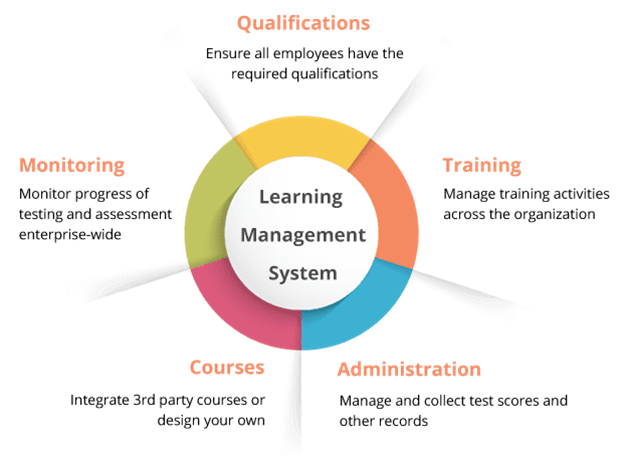Learning Management System Singapore: How It's Changing Education in Singapore
Learning Management System Singapore: How It's Changing Education in Singapore
Blog Article
Selecting the Ideal Understanding Administration System for Your Company
Selecting the optimal Learning Management System (LMS) for your company is a multifaceted decision that needs cautious consideration of various components. From specifying precise discovering purposes that resonate with your strategic vision to reviewing customer experience, each aspect plays an essential duty in the general effectiveness of the system. In addition, understanding assimilation abilities and ensuring scalability for future needs can not be ignored. As organizations pursue performance and growth, the option of an LMS comes to be progressively substantial. What are the essential factors to consider that can influence your decision-making procedure?
Define Your Discovering Goals
Specifying clear understanding purposes is important for the effective execution of a Learning Administration System (LMS) These objectives function as a roadmap, directing the growth of material, evaluations, and general educational strategies within the LMS. By establishing details, measurable, attainable, pertinent, and time-bound (SMART) goals, organizations can ensure that the knowing experiences are aligned with their tactical goals and learner requirements.
Effective understanding objectives should envelop what learners are expected to recognize or have the ability to do upon completion of a course or training program. This clearness not only help in web content development however likewise helps with the analysis of student progression and the overall performance of the LMS. Singapore LMS. Moreover, well-defined goals make it possible for stakeholders to evaluate whether the picked LMS functions and functionalities align with their educational objectives.
Assess Customer Experience
Once finding out objectives have actually been established, examining customer experience comes to be a vital following action in choosing a suitable Discovering Administration System (LMS) Customer experience encompasses the overall contentment and simplicity with which students engage with the system. A properly designed LMS must help with intuitive navigating, ensuring that customers can situate courses, materials, and support easily.
To analyze customer experience, consider carrying out use screening with a depictive example of end-users. This can supply useful understandings into how students involve with the platform. Trick elements to examine include the LMS's user interface design, availability features, mobile compatibility, and the clearness of instructions provided. Customer feedback is essential; gathering surveys or conducting meetings can disclose usual pain factors and locations for renovation.
Furthermore, examine the accessibility of support resources, such as tutorials and assistance centers, which can boost the user experience. The responsiveness of client support is also vital; prompt aid can considerably reduce stress that users may run into. Ultimately, choosing an LMS that prioritizes customer experience not only enhances the discovering process yet likewise promotes higher interaction and complete satisfaction among students.
.png)
Evaluate Integration Capacities
Identifying the value of seamless capability, reviewing assimilation capacities is important when selecting a Knowing Administration System (LMS) A reliable LMS should assist in interoperability with existing systems, such as Human Source Monitoring Solution (HRMS), Customer Partnership Administration (CRM) platforms, and various other instructional devices. This integration boosts information flow, minimizes his explanation management problems, and guarantees a natural understanding setting.
When assessing an LMS, think about the sorts of combinations provided. Try To Find Application Programs Interfaces (APIs), Solitary Sign-On (SSO) capabilities, and pre-built connectors that simplify assimilation procedures. Furthermore, validate the LMS's ability to incorporate with third-party devices, such as material collections or assessment platforms, which can significantly improve the learning experience.

Think About Scalability and Adaptability
As companies progress, the capability of a Discovering Monitoring System (LMS) to scale and adjust ends up being significantly vital. A scalable LMS can suit growth in individual numbers, training course offerings, and content without endangering efficiency or user experience. As organizations broaden, whether with increased workers, brand-new places, or varied training demands, the LMS must effortlessly grow alongside these modifications.
Adaptability is just as vital; a reliable LMS needs to sustain various discovering techniques, such as online, combined, and mobile knowing. This versatility permits organizations to react swiftly to emerging fads in training and advancement, making sure that they can offer appropriate and interesting knowing experiences - Learning Management System Singapore. Furthermore, the system must provide adjustable attributes, making it possible for companies to tailor the LMS to their certain needs and branding
Furthermore, a flexible LMS must integrate easily with existing systems and devices, facilitating a cohesive discovering community. Thus, when selecting an LMS, it is critical to assess not only its current abilities however also its possible to adjust and grow abreast with the organization's critical goals and evolving learning requirements. This insight can substantially boost the long-term practicality of the selected LMS.
Testimonial Expenses and Budgeting
When assessing a Learning Monitoring System (LMS), assessing costs and budgeting is vital to ensure that the investment aligns with the organization's strategic objectives and monetary abilities. Organizations needs to begin by determining the total expense of ownership, which includes licensing costs, execution prices, upkeep, and any kind of added expenses such as training and technical assistance.
It is crucial to compare different LMS alternatives, as pricing models can differ significantly amongst suppliers. Some systems might supply a subscription-based design, while others might bill a single cost. Organizations should additionally take into consideration the scalability of the LMS; as they expand, the price structure may transform, affecting long-term budgeting.

Final Thought
Choosing a suitable Learning Monitoring System (LMS) is essential for accomplishing business understanding goals. Ultimately, the appropriate LMS offers as a critical tool in cultivating a reliable knowing setting and driving organizational success (Canvas Singapore).
Choosing the optimum Discovering Administration System (LMS) look at this website for your company is a diverse decision that calls for cautious consideration of different elements.Specifying clear knowing purposes is vital for the effective implementation of a Knowing Management System (LMS)Once finding out goals have actually been developed, assessing individual experience becomes an important following action in choosing an ideal Knowing Management System (LMS)As organizations progress, the capability of an Understanding Monitoring System (LMS) to range and adapt ends up being increasingly essential.Choosing an appropriate Discovering Management System (LMS) is vital for attaining business discovering goals.
Report this page